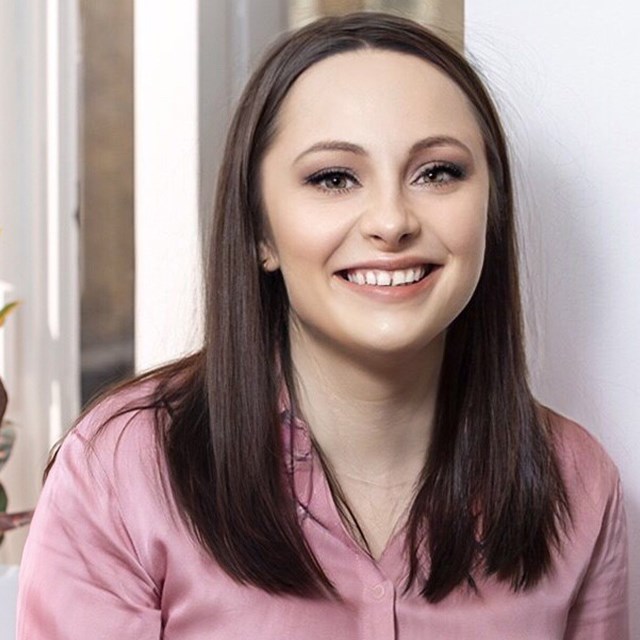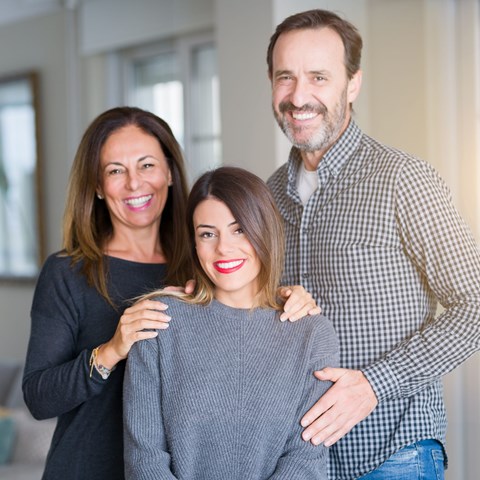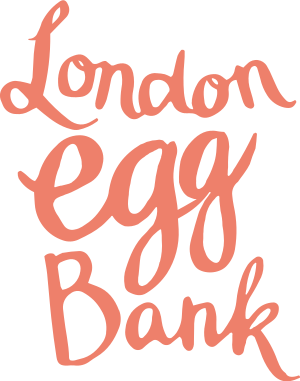When the law changed back in 2005, giving young people conceived with donor eggs or sperm access to identifying information about their donor once they reach 18, it signalled a significant shift for all of those involved in donor conception.
As the first of those children start to turn 18 in 2023, we look at what we know about how the donor-conceived community is responding to these changes.
Why should donor-conceived people have the right to know their donor?
The Director of the Donor Conception Network, Nina Barnsley, has observed that attitudes to donor conception have dramatically shifted in the thirty years since DCN was founded.
“The change in the law in the UK back in 2005 was, in part, a recognition of two key things. Firstly, that openness was important for donor conception families. There would be no point in children having access to identifying information about their donor if they don’t know they are donor conceived. Children need to be told about their origins.
Secondly, it was a recognition of the importance for donor-conceived people to have information about genetic relatives, particularly the donor and any half-siblings created through the same donor. Listening to the voices of donor-conceived adults, and learning the lessons from adoption, it was clear that changing the law was the right decision.”
With this updated insight in mind, the focus moves from whether more openness is right to what support is available to parents in telling their children about their donor and making sure that support networks exist for both parents and children, as well as for the donors themselves.
There are many donor-conceived support groups, such as the DCN, who offer support to everyone affected by donor conception, from parents who have donor-conceived children, to donors, and donor-conceived adults.
"Listening to the voices of donor-conceived adults, and learning the lessons from adoption, it was clear that changing the law was the right decision.”
How do donors feel about the possibility of meeting the children born from their donations?
Setting out to become an egg donor is not something that is commonly experienced by a lot of people, and because of that, there is no common expectation about how you should feel or what might happen in such a situation.
When you consider donating eggs, you should be made aware that there is a possibility that you might one day meet young people born from a donation you have made at least eighteen years before.
Thinking about potential future contact with these children can be very emotional, especially when the donor has her own children, she may need to explain to them that they have half brothers and sisters, and the dynamics of the family may change as a result.
At London Egg Bank we help every egg donor with a detailed explanation of the procedure and possible future implications.
For our egg donation programme, we offer at least one counselling session with an independent counsellor, which helps you think through the issue as you make your decision, and how it could affect you and your family in the future.
It's our responsibility to make sure that our donors are able to make an informed decision about whether they want to donate or not, and they can withdraw at any time if they are not sure that egg donation is the right decision for them.
"I’m comfortable, and in a way excited, knowing that in future any donor-conceived children could contact me."
From our own work with egg donors, we have taken some views and opinions on how women believe they might feel in the future.
The women who donate eggs to London Egg Bank are overwhelmingly positive and generous about the prospect of meeting anyone born from their eggs and look forward to that possibility as having huge potential.
Maria (London Egg Bank Donor):
“I’m comfortable, and in a way excited, knowing that in future any donor-conceived children could contact me. This could open up many possibilities, including the chance to meet the people who ultimately chose my eggs from the many available. It would just be great to have the potential for more people to get to know and maybe even build a friendship with.”
Kate (London Egg Bank Donor):
“For myself and my husband, we talked through all the implications of egg donation including the fact that a donor-conceived person can learn the identity of their ID release donor when they turn 18, and that wasn’t a concern for us at all. To us, any person born as a result of my egg donation will be welcome to contact us if they want to, we feel strongly that people should know their full story and we would be happy to help with that if it happens.”
Alice (London Egg Bank Donor):
“I’m comfortable that if the child or children grow up and want to know the identity of their donor, I’ll be very happy to meet with them if that’s what they wish.”
"We’re planning to tell our daughter about her origins, both because we think it’s her right to know, and also pragmatically, because we think she would inevitably find out at some point."
How do parents feel about their children being able to find out about their donors?
The thought of their baby wishing to find out more about their biological origins may be far from the day-to-day of new parents beginning their parenting journey, but as part of our support package, we encourage all new parents to consider how this might make them feel. For themselves and for their children.
We will always advise prospective parents to take as much time as they need to talk to other parents who have been through the same experience. They can find those families in many donor-conceived support groups in the UK. London Egg Bank can help patients by providing a counsellor so they can discuss their feelings.
In same-sex couples or with single parents it is much more obvious that help has been needed to conceive, but where heterosexual couples are involved, there are potentially more grey areas about who, what and when information is shared about the means of conception, and these issues again should be carefully considered and anticipated before starting out.
The UK legislation is often a factor in women choosing to be treated in the UK, as they welcome the prospect of their children eventually finding out more about their donor. This is very much the case with the London Egg Bank parents we spoke to:
Olivia (London Egg Bank Patient):
“I was reassured that the decision to use a donor ‘could work’, but reading the information helped me decide that my preference was for a potential child to be able to contact the donor in the future if they wished, and for the donation to be made on an ‘altruistic’ basis.
This meant staying in the UK for treatment and taking a very open approach with any child on being donor-conceived and being open in the future to potential additional relationships being added to our family, be that the original donor or additional potential siblings.”
Zoe (London Egg Bank Patient):
“Our decision to use a UK-based egg bank was largely decided by our wish to tell our child about their origins and to give them the option of contacting their egg donor when they were old enough to do so.
We’re planning to tell our daughter about her origins, both because we think it’s her right to know, and also pragmatically, because we think she would inevitably find out at some point, given the prevalence of genetic testing these days and the fact that we haven’t concealed it from family and close friends.
Having said that, I’m not looking forward to introducing the subject as it does feel a bit heartbreaking to have to tell her, but I will take advice on the best way to introduce the concept gradually.”
Charlotte (London Egg Bank Patient):
“I conducted a lot of research into assisted reproduction (we call it PMA or procreation médicalement assistée in France). In particular, one area took my attention, was the anonymity of donors. There are still strict anonymity laws in most of Europe, including France, although that may now be changing. I wasn’t aware of other French women who were in the same position as me, who had planned to go to England for treatment, even though it seems there is a shortage of available donors in France.
This was essential to me because I believe the child has the right to know his biological background if he wants to when he grows old enough to understand; just being able to give him a choice was critical to me, and of course, eventually, it may be important to him.”
Anita (London Egg Bank Patient):
It would be nice for the egg donor to know that her eggs worked for us, and to send her a photo of the baby. But there is also a part of me that holds back from that, as I don’t want my baby to feel that she has two mothers. I know that my daughter can trace the egg donor once she reaches 18, but I’m not worried about that and will deal with the situation when it happens. In the meantime, there are no words that can describe how grateful we are.
Jane (London Egg Bank Patient):
“We will be completely open with our children about their story and have already started talking to our little girl about it, even though she is too small to understand. I feel real affection towards our donor, although I know very little about her.
Now I have my children, I know that if they want to make contact when they are older, I will fully support them. I hope that at some stage I can thank her - she has given us the most precious gift and brought so much joy and love into our lives.”
All children while they have a loving family who has raised them, may still have a need or desire to find their donor or any donor-related siblings that may be out there.
Telling early and telling openly will offer donor-conceived children the most support and reassurance, and above all keeping communication channels open even when things may get tricky is key to maintaining those early family bonds.
From a young adult’s point of view, they want to feel comfortable enough with their family to explore the donor relationships they may discover, not as a replacement but as a potential addition to their lives. This article from the US website parents.com has some great insights into how young people approaching donor discovery might want their parents to know:
What do donor-conceived people think about their donors and planning or not planning to meet them?
There is still a lack of information collected about donor-conceived adults, but we expect that to increase as this more open approach takes firm root. However, where surveys have been conducted, there is room for much optimism.
A Harvard Medical School Survey in 2021 reviewed how individuals conceived through donors felt about how they were conceived. Individuals experienced significant distress upon learning about the nature of their conception when it was revealed to them later in life via other sources than their parents, such as via a gene testing process. Almost 43 per cent believed that genetic testing companies ought to offer more complete information about using their products even though 90.2 per cent believed being fully informed was impossible.
How Do Individuals Who Were Conceived Through the Use of Donor Technologies Feel About the Nature of their Conception?
A recent report published in the Human Reproductive Journal (March 2023) looked at the experiences of young adults conceived through egg donation, sperm donation and surrogacy. It is one of the first reports to hear directly from the young people themselves, as previous reports have spoken to parents and children.
According to the report, young adults born through surrogacy and donor conception feel neutral or positive about their birth, although given the sample this may be due to finding out about their conception at an early age. Some of the young adults wanted to meet their donors, but that doesn’t mean they took action to do so.
“I know it’s not normal but it’s normal to me, and that’s all that matters”
In another survey conducted by wearedonorconceived.com, the majority of respondents indicated strong support for donor-conceived individuals to have the option to access important information like how many donor siblings they have (94%), the medical history of their donor (99%), and the identity of their donor (94%).
2020 WE ARE DONOR DONOR-CONCEIVED SURVEY REPORT
Some of the individual responses from this survey add additional detail to the importance of being able to trace a genetic connection:
Bevs (Donor-Conceived Person):
“In finding my donor's family and many siblings I have found a sense of peace I had never dreamed possible. Because of this, I remain committed to the Donor Conceived Register to help and support others to find their answers and sense of peace too.”
These comments reflect on the importance of knowing the donor and her medical history, and the common acceptance that growing up with the knowledge you are donor-conceived from an early age will give you the best opportunities for easy acceptance. Failing to share information at an early age may lead to distress at a later age that could have been avoided.
"It is completely true to say that I have never had an issue with being donor-conceived. Just the only problem I have had is getting people to believe me when I say this! My parents started talking to me about being donor-conceived when I was about four – I have no memory of a particular moment, as far as I can remember I have just always known."
Read Kate’s Story on the Donor Conception Network Website
John I (Donor-Conceived Person):
"I found out that I was donor-conceived on my 30th birthday. This was not a planned event! The scariest aspect of this is that being conceived before August 1991, there is no information available concerning my donor. Some of the requirements donors had to meet back then were basic and some people who donated barely met them. The fact is that I could have a lot of half-siblings who could be any age, anywhere and may have inherited an unknown illness or issue from our donor. I had a responsibility to put myself out there, so I have found my donor and one other donor-conceived sibling I also helped five other pre-1991 donor-conceived people to find and contact their donors."
It’s clear from this collection of views and survey results that more openness and availability of donor information is significantly changing the way people might react to finding out they are donor-conceived. The availability of this information reduces the risks of donor-conceived trauma and encourages the acceptance of a situation where donors, recipients and the donor-conceived can navigate their family relationships with greater ease and comfort than before.”

Director of Operations of London Egg Bank.
Learn More about Donor Anonymity

Donor Anonymity
Among the many considerations when you are donating your eggs or looking for an egg donor, is how the UK legal position will impact you and also any future child.
Egg donor anonymity enters a new phase in 2023
Donor-conceived people reaching 18 this year will be the first to benefit from a 2005 legal change that will allow them to gain access to more identifiable donor information.
